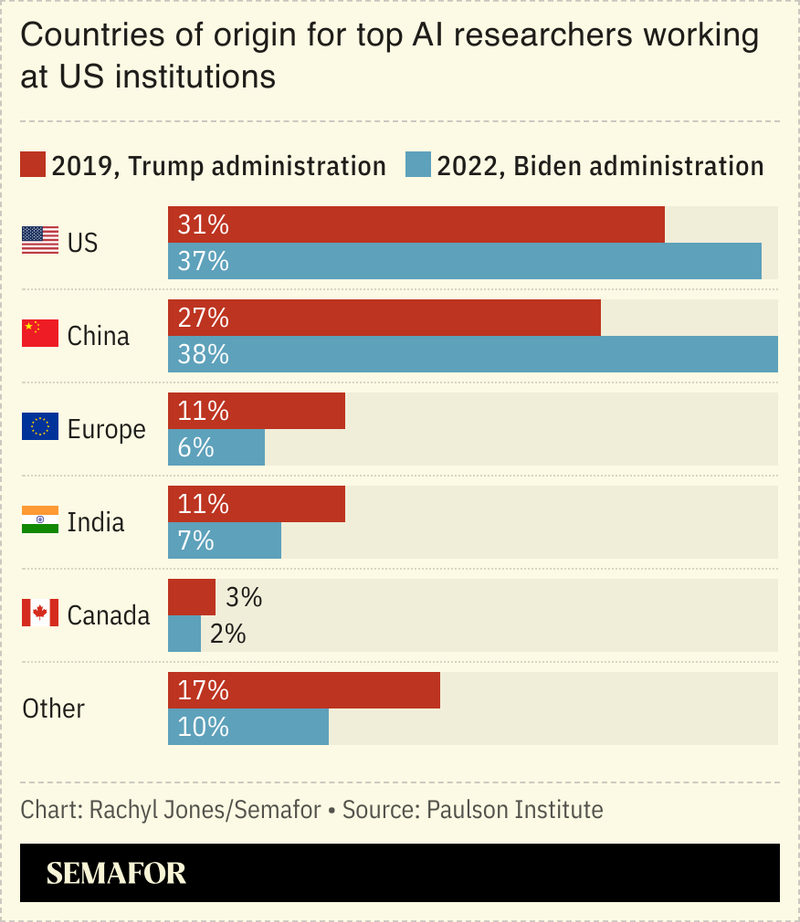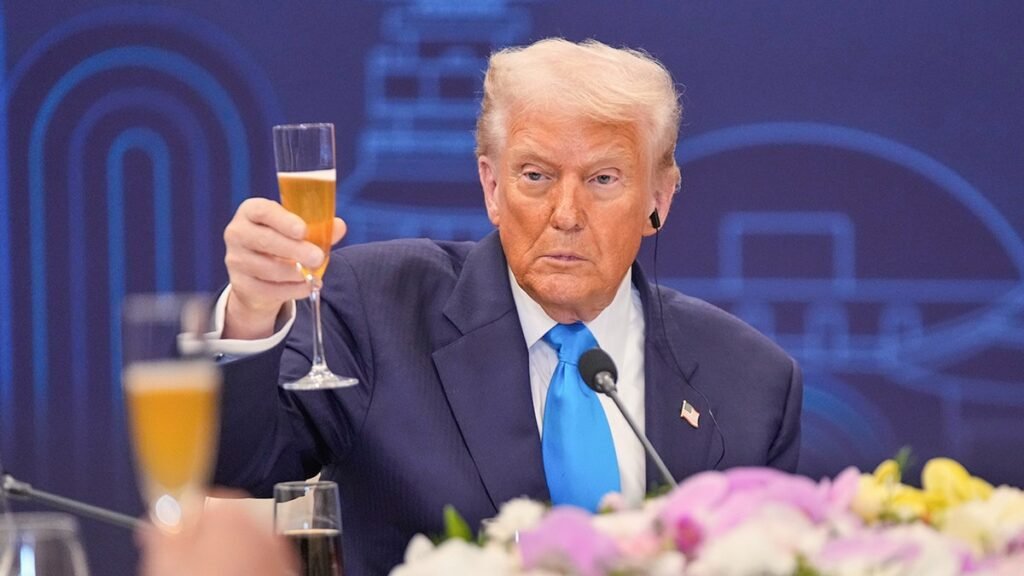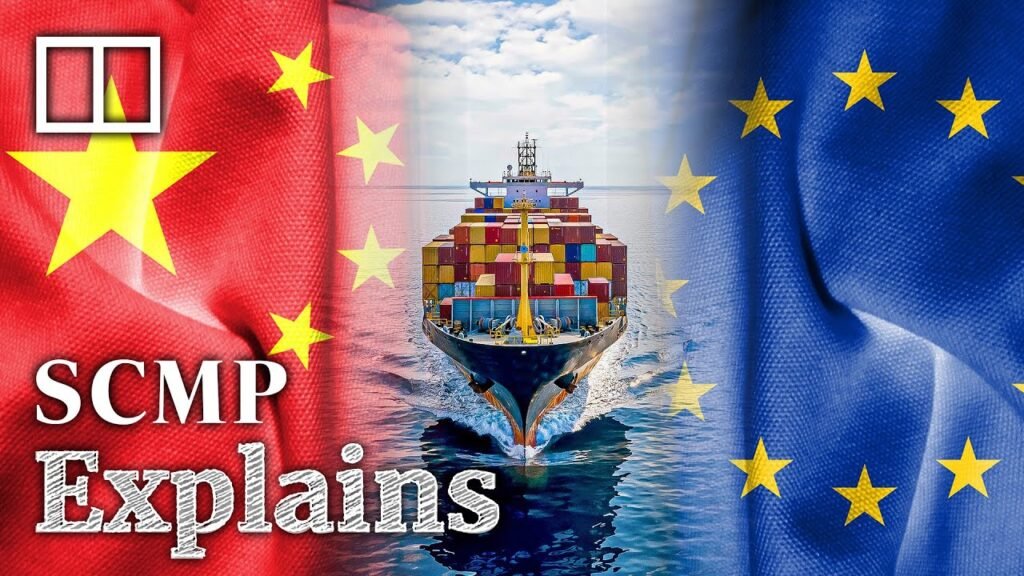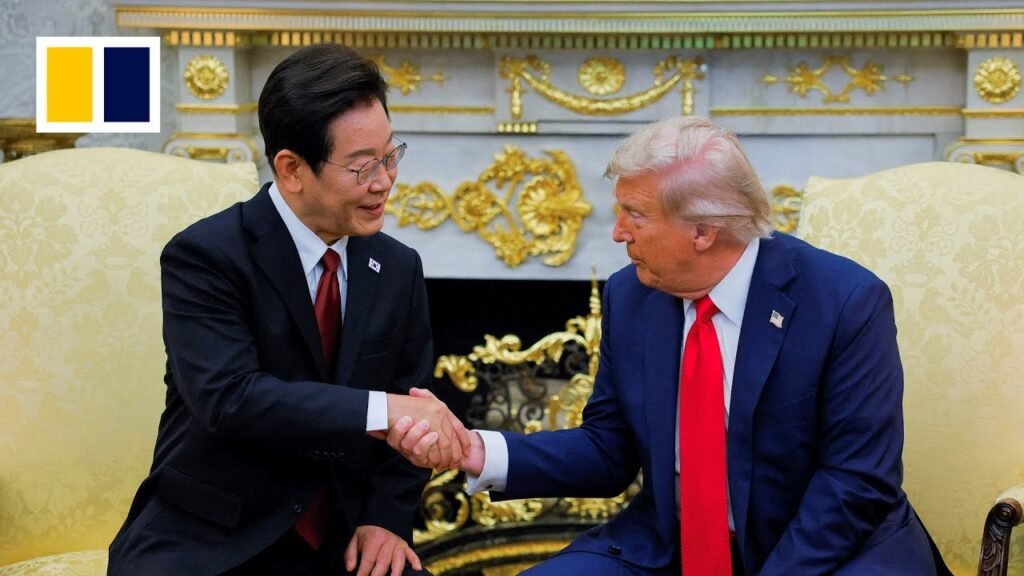U.S. President Donald Trump looks on next to people waving Malaysian national flags before he departs on Air Force One from Kuala Lumpur International Airport in Sepang on Oct. 27, 2025.
Andrew Caballero-reynolds | Afp | Getty Images
U.S. President Donald Trump said Monday that Washington and Beijing were poised to “come away with” a trade deal ahead of his expected meeting with Chinese leader Xi Jinping.
Speaking aboard Air Force One en route to Japan from Malaysia, Trump added that he could sign a final deal on TikTok as early as Thursday.
“I have a lot of respect for President Xi, and we are going to come away with the deal,” Trump said.
He began his whirlwind weeklong Asia trip on Sunday with a flurry of trade deals and a peace agreement aimed at strengthening his position before meeting Xi.
During his first stop in Malaysia, Trump signed separate trade and mineral agreements with his Malaysian and Cambodian counterparts, as well as frameworks for trade pacts with Thailand and Vietnam.
The four countries, part of an 11-member regional bloc called the Association of Southeast Asian Nations (ASEAN), pledged to remove trade barriers, provide preferential market access to U.S. goods, and increase purchases of American agricultural, energy products, and aircraft.
They also agreed to cooperate with Washington on export controls, sanctions and access to critical minerals — commitments that appear to strengthen Trump’s standing in a region where Beijing has a growing clout.

Wendy Cutler, senior vice president at Asia Society Policy Institute, said that the agreements focused on “cooperation rather than hard commitments,” with many important points “considerably shorter” than prior U.S. trade agreements.
“The U.S. can impose tariffs or terminate the agreement if it considers Malaysia in violation of commitments,” Cutler added.
In Japan, Trump is expected to meet Prime Minister Sanae Takaichi and the emperor before flying to South Korea, capping the trip with a of the Asia-Pacific Economic Cooperation, or APEC, summit.
Chinese Premier Li Qiang, who also flew in to Malaysia for the 28th China-ASEAN Summit, stopped by Singapore, where he witnessed the signing of eight agreements covering trade and the digital economy.
Scant details
While the diplomatic momentum appeared strong, few details were released about the scope of the new trade frameworks.
Under the agreements, Washington will keep a 19% tariff rate on most exports from Malaysia, Cambodia and Thailand, while some products will face no duties, according to joint statements from the White House.
Tariffs on Vietnam will remain at 20% with some goods eligible for duty-free access, according to the joint statement. Vietnam, which recorded a trade surplus of $123 billion with the U.S. last year, also pledged to step up purchases of American products to address the trade imbalance.
Malaysia agreed not to impose bans or quotas on U.S.-bound exports of critical minerals and to speed up development of its rare-earth projects needed by American companies.
The country, which sits on an estimated 16.1 million tonnes of rare earth deposits, has enforced a nationwide moratorium on the export of unprocessed rare earth materials since last year to develop its downstream industries and prevent resource exploitation.
Thailand will ease tariff barriers on U.S. goods by accepting some American-made vehicles, medical devices and pharmaceuticals, and by importing ethanol for fuel. It also pledged to relax foreign ownership restrictions for U.S. investors in the telecommunications sector.
The agreements left open the possibility of additional product exemptions to be decided later, said Michael Wan, economist at MUFG Bank. He noted that sectoral tariffs on pharmaceuticals and electronics would remain key, as would questions over the legality of Trump’s use of an emergency powers law to impose them.
Peace deal
Aside from trade agreements, Trump announced the formalization of an extended truce between Thailand and Cambodia, building on a ceasefire that he brokered in July following their violent border clashes this summer.
Trump, who has cast himself as a global peace broker, said the deal showed his administration has done “something that a lot of people said couldn’t be done, and we saved maybe millions of lives.”

“My administration immediately began working to prevent the conflict from escalating,” Trump said. “Everybody was sort of amazed that we got it done so quickly.”
Trump-Xi Seoul meeting
As Trump mingled with other leaders in Malaysia, U.S. and Chinese negotiators met on the sidelines of the ASEAN summit, where the bilateral talks yielded a framework ahead of an expected meeting between Trump and Xi in South Korea on Thursday.
“Markets are increasingly getting used to a ‘punch-first, negotiate-second’ tariffs overture,” said John Woods, chief investment officer at Lombard Odier.
Chinese top trade negotiator Li Chenggang said Sunday that a preliminary consensus had been reached after “very intense discussions” on a range of issues, including export controls, fentanyl and shipping fees.
The next step, he said, was for both sides to complete their domestic approval procedures.

In an interview with CBS on Sunday, U.S. Treasury Secretary Scott Bessent said that Trump’s threat of 100% tariffs is “effectively off the table” after a “very good two-day meeting” with Chinese officials.
Speaking separately to ABC News’ “This Week,” Bessent said the negotiations produced a “substantial framework” that could ease concerns among American soybean farmers over China’s boycott.
China bought more than half of U.S. soybeans in 2023 and 2024, accounting for nearly $12.8 billion in 2024. But Beijing halted purchases earlier this year after Trump ignited a trade war.
Bessent also told ABC News that he expected China to delay its rare earth export controls, set to take effect in the coming weeks, by one year. Trump and Xi could “consummate” a deal to allow TikTok to continue to operate in the U.S., Bessent added.
“We believe both sides, after testing the other’s boundaries, will likely make concessions again,” said Ting Lu, China economist at Nomura, who expects the additional 100% tariffs on Chinese goods will “surely not be implemented” with both sides likely to extend the existing tariff truce.
In return, Lu added, Beijing may resume purchases of U.S. soybeans and ease the enforcement of its rare earth export controls.






